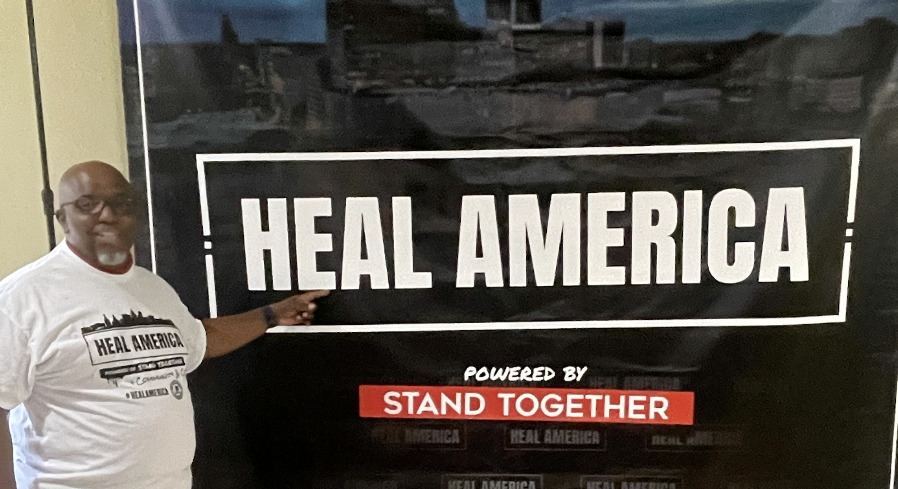“Relationships are everything.” – Bishop Dr. Dwayne K. Pickett Sr.
When serving a community in any capacity, not every sponsor or partner may be the right fit. Dr. Dwayne Pickett shared his experience and some things to look for to ensure alignment and overcome criticism as a leader.
Finding the right donors or partners
“During the first water crisis, we took whatever people submitted. We had a forklift and everything at my church to unload water. In contrast, during the last water crisis, there were no forklifts available, so we worked with another church in the city. So anybody wanting to send me water, I sent them there,” Dr. Pickett said.
Dr. Pickett’s example shows how leaders, when connected with the right partners, can be more effective at getting funds or resources to where they’re needed. It takes humility to understand the role a leader plays in helping a community, but also to know when to step back.
GET INSPIRED BY DR. PICKETT’S COMMUNITY TIES
He advises that being firm and clear in communicating your needs can go a long way in directing resources. When you’re dealing with recurring crises involving the same problem, it can be especially difficult for sponsors or donors to understand that each situation is different or that what they want to send isn’t what you need.
“At one time there was so much water, but one very close friend of mine was adamant about sending two or three truckloads of pallets of water. And I told him we didn’t need pallets of water. We can buy the water here. This was unique from the very first crisis because there was no water [then], so we had to get water from outside the city,” he said.
“The second one and the last time, there was water at the local stores, so we really didn’t need people to spend the money to hire a driver and load a truck to bring water. We needed resources here to buy the water and to fund the trucks and the people who were actually going out to hand the water out. I think it’s a matter of being practical.”
DR. PICKETT SHARES HIS TIPS FOR CRISIS FUNDRAISING
Dr. Pickett recommends reminding donors of the real need and bringing them into your decision making if they’re recommendations don’t fit with what you’re seeing on the ground. He also understands hesitation on the part of donors that may have been betrayed in the past or lost trust in nonprofits. That can be a difficult reality to grapple with as a leader. He offers advice for that, too.
“For me and my organization, my church of 26 years and the success we’ve had without anybody’s money, I was offended because I thought what people were saying was, ‘Hey, we don’t trust you to do what’s right.’”
If you can’t get on the same page with a donor, it’s OK to let the donor go.
“I typically forwarded those people to other people because we were on the ground doing it along with many others. We know how it needs to be done and we are doing it,” Dr. Pickett said.
Facing criticism on innovative solutions to the water crisis
Dr. Pickett had the water that families needed. What he didn’t have were the trucks, drivers and volunteers needed for distribution.
But Dr. Pickett had an idea: rather than wait for volunteers to donate their free time, pay them.
“It was my idea to pay the people to say, ‘Hey, we need these young guys to help and let’s pay them. That will benefit them, and give them a sense of purpose for what they are doing.’”
And even the best ideas or ideas with the best intentions to solve problems can run into criticism. Dr. Pickett faced pushback for his efforts.
LEARN HOW DR. PICKETT KEPT FAITH DESPITE WATER CRISIS
“Believe it or not, it’s painful even helping people. I mean, ‘You’re not giving enough. You’re not doing it fast enough. Why y’all don’t have it today?’ and all of that type of criticism,” he said.
“Some people didn’t think that was good, but the problem is: How could I expect a man or woman who was still working every day to come every day for hours [without pay] and pass out water? I just think it was unrealistic.”
Thanks to Dr. Pickett’s network of partners who believed in his innovation and his resolve to help the community, he was able to direct funds and resources on the ground as needed.
“It’s been a crisis in a number of ways. And I used every dollar anybody ever sent me. We just kept buying water and kept helping, kept working, kept putting gas and oil in the trucks and just kept doing the work and kept paying people until we couldn’t,” Dr. Pickett said.
“Dr. DeForest B. Soaries, Jr., was a big help in addition to Heal America and our network of friends and others around the country who were able to pitch in. It has really been a team effort.”
Holding out to find partners who believed in Dr. Pickett’s vision and solutions to the crisis allowed him and his team to have maximum impact to help their community.

